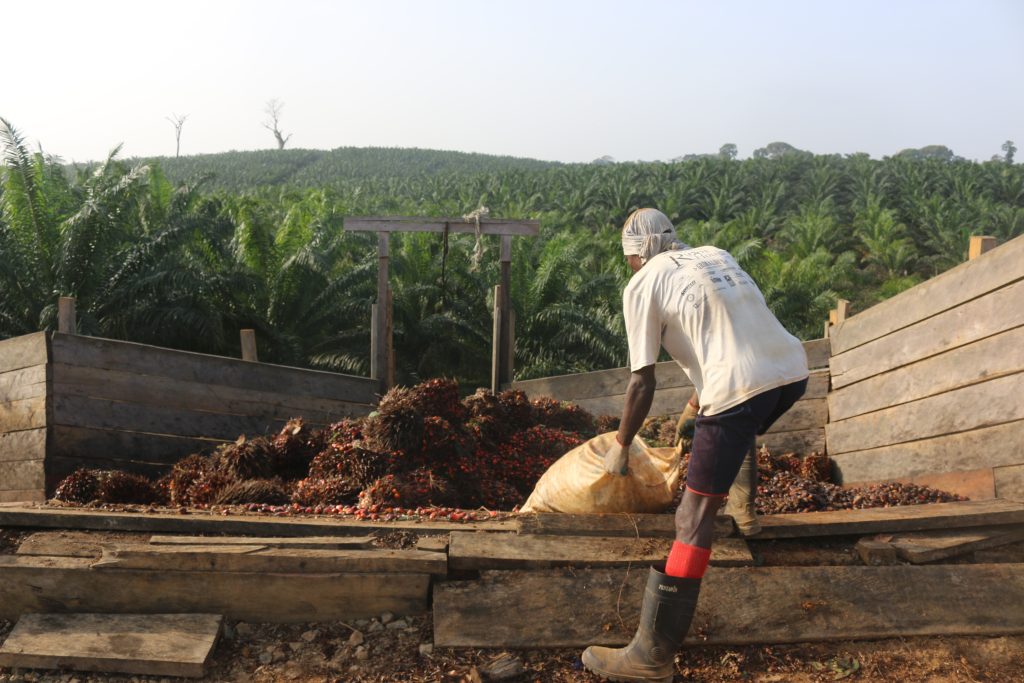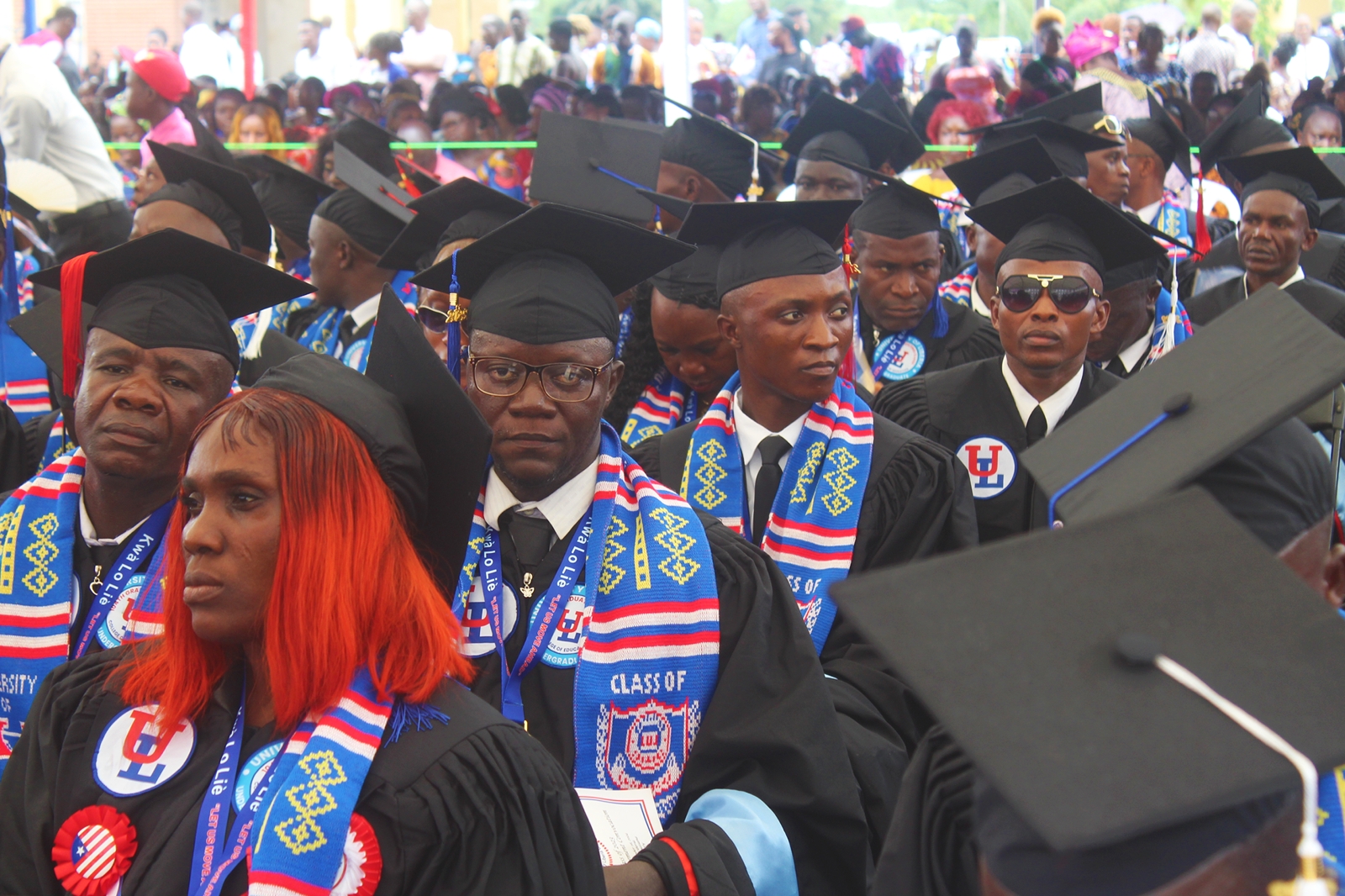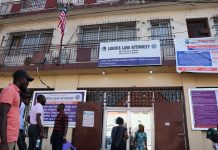Top: The University of Liberia is graduating about 2,600 students this month. Lux Radio/ Isaiah Joseph Gbainhea
By James Harding Giahyue
MONROVIA – The University of Liberia is graduating some 2,600 students this year for the skilled labor market—perhaps, including Golden Veroleum Liberia (GVL). However, they may have to settle for unskilled jobs like two alumni of the university and another school.
The two individuals have bachelor’s degrees but worked as casual laborers with GVL. Their tasks include cutting grass with handheld tools to plant palm trees in the Tartweh-Drapoh Chiefdom, Kpanyan District, Sinoe County.
“I felt it was useless for me to leave my home in Sinoe to go Monrovia and get a degree, come back and GVL gave me a cutlass to brush,” said Lawrence Doe, a 2018 general agriculture graduate of the University of Liberia, in a phone interview. Doe worked for GVL as a casual laborer for six weeks in 2020.
“For me, knowing myself, I said it was an abuse to education,” Doe added.
Another graduate worked for over a year as a casual laborer before GVL assigned him an office post. The DayLight is not identifying the worker to protect him/her from reprisal.
The newspaper obtained copies of the fieldworker graduates’ diplomas and verified their stories with Nunu Broh, the chairman of the Tartweh-Drapoh Agriculture Committee. Odune Dumbar, a leader in Tartweh-Drapoh, a chiefdom in the Kpayan District and hometown of Doe and the unidentified worker.
Broh, Dumbar and other community leaders had encouraged the two individuals to take the jobs as a stepping stone for top offers.
The unidentified worker stayed there for over a year and finally got a deserving job. For his part, Doe found a decent job and left the company.

No employment amid vacancies
Liberia signed a 65-year concession agreement with GVL, covering 220,000 hectares of ancestral land in southeastern and southcentral Liberia.
The 2010 agreement obligates the company to employ skilled Liberians from in and out of its concession areas.
GVL has long violated that provision, prompting criticism from then-Vice President Joseph Boakai in 2015. GVL welcomed the criticism but outlined its supposed employment history.
Amid its skilled employment obligations, evidence shows GVL has vacancies for such workers.
In 2020, GVL laid off nearly 450 workers due to the coronavirus pandemic and the fall in the price of crude palm oil on the world market. Later that year, it redundant an additional 250 workers, the fourth layoff in seven years.
Earlier this year, an environmental audit report found that GVL had a vacancy for a health and safety staff at its palm oil mill in Sinoe’s Tarjuwon District.
The company has yet to hire graduates for a new clinic in Tartweh-Drapoh despite a protest there last year. Letters between GVL and Tartweh—obtained by The DayLight—suggest GVL has several vacancies for human resource officer, finance officer, transport manager, safety officer and assistant manager, etc.
GVL denies employing graduates as unskilled laborers. “This is not to the knowledge of GVL,” said spokesman Alphonso Kofi in an email. “We will be glad if you provide some names…” The DayLight provided Lawrence Doe and has not heard back from Kofi.
Green Livelihoods Alliance (GLA) provided funding for this story. The DayLight maintained editorial independence over the story’s content.





Facebook Comments